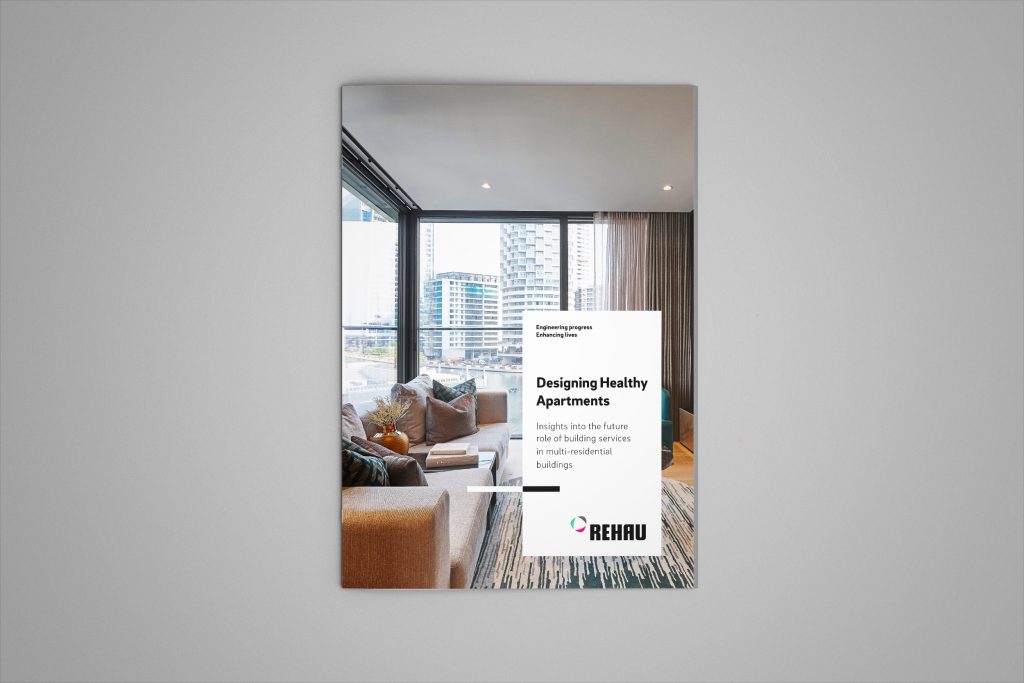Amid the current UK multi-residential development boom, the majority of contractors and consultants claim sustainability will be the most important design issue over the next ten years, according to an industry report.
In contrast, the survey of 520 M&E contractors and architects – 25% of whom work in the residential market – showed 44% of respondents believe wellbeing is being “value engineered” out of a project later on in the build. This was despite 91% also identifying human health as a key concern when specifying pipe fittings.
As the research suggests wellbeing is not prioritised throughout the entire building process, Designing Healthy Apartments – the report from leading polymer building solutions provider REHAU – explores the intrinsic link between health and sustainability when designing buildings, and solutions that are available to tackle this.
Mounting pressure on construction professionals to deliver futureproof buildings, against a backdrop of changing legislation, has been further exacerbated by increased demand for inner-city living. In order to deliver multi-residential developments in line with expectations of occupants, the report demonstrates that health and comfort must be designed and built into the environment just as much as sustainability.
With the multi-residential construction market under pressure to meet housing demand across the nation, Steve Richmond, Head of Marketing and Technical at REHAU Building Solutions UK, explains the importance of prioritising these aspects from the outset.
“With our research highlighting sustainability as a priority for the market, a key aspect also being “value engineered” out of projects, we are releasing this report to identify solutions to meet this now, and into the future,” says Steve. “Designing Healthy Apartments explores the importance of considering materials that promote wellbeing, sustainability and high performance, highlighting the key role of polymer-based products in delivering building services fit for 21st century needs.”
While sustainability and performance remain key to the built environment’s health and longevity, the importance of hygiene has also climbed the public agenda in light of COVID-19. The report explores building services’ role in achieving optimal hygiene for residents, as well as the impact of sealed buildings on air quality.
Steve adds: “This report is making the link between these critical priorities, and seeks to demonstrate the need for their consideration during design, if legislation and end-user expectations are to be met. As a supplier, listening to the requirements of industry professionals is key to ensuring our solutions are fit-for-purpose and this report shows exactly how we intend to do this.”
For more information and to read REHAU’s guide, Designing Healthy Apartments, please visit: www.rehau.com/uk-en/designing-healthy


